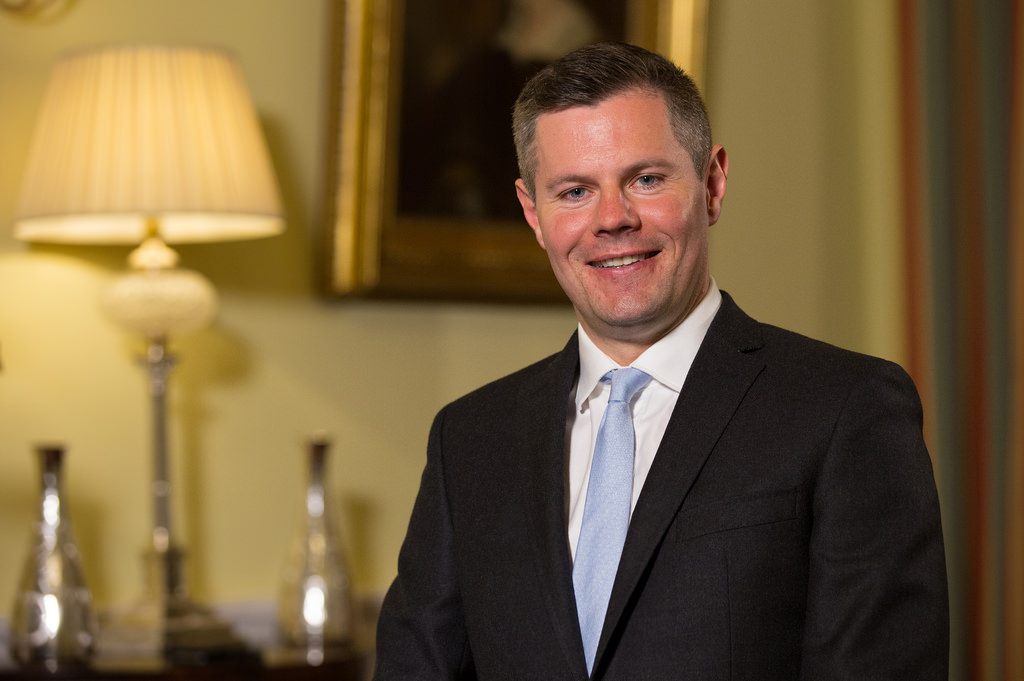Deal with Greens paves way for Budget approval
Finance secretary Derek Mackay has reached an agreement with the Scottish Green Party to support the Scottish Budget at all parliamentary stages.
In letters exchanged on Thursday, Mr Mackay outlined a package of reforms to local government as Green co-convener Patrick Harvie said the deal was the result of “constructive politics”.

Finance secretary Derek Mackay
As he confirmed an agreement had been reached that will see the Scottish Budget passed at all stages by the Scottish Parliament, Mr Mackay outlined a package of reforms at stage one of the Budget Bill, hailing the proposals as a “substantial devolution of power to local government”.
The finance secretary also confirmed the Scottish Budget will provide an additional £90m to support local government and as well as further flexibility and increased income from council tax. Taken together this enhanced package offers up to £187m of increased funding and flexibility to councils.
Mr Mackay said: “The Scottish Budget proposes an additional £2bn of investment. It provides an increase of almost £730m for health and care services, more than £180m to raise attainment in our schools and gives a vital boost to our economy through a £5bn infrastructure programme.
“As a result of these decisions, we have been able to invest in essential public services, particularly the NHS, while ensuring 55% of income taxpayers in Scotland pay less tax than those earning the same income in the rest of the UK.
“The Scottish Government has continued to ensure our partners in local government receive a fair funding settlement despite further cuts to the Scottish Budget from the UK Government. These additional measures will deliver the most significant empowerment of local authorities since devolution and provide additional funding to support local services.
“This enhanced package offers up to £187m of increased funding and flexibility to councils, on top of the £11.1bn local government settlement. In total overall spending power for local authorities next year will be £620m higher than it is currently.”
The Scottish Government’s proposals had been dependent on securing the support of the Scottish Greens on Stage 1, Stage 2 and Stage 3 of the Budget Bill, as well as support for the Local Government Finance Order, and ensuring that the Scottish Rate Resolution and Non-Domestic Rates orders pass successfully through parliament.
The Conservatives, Labour and Liberal Democrats had previously ruled out backing the proposals, partly because the Scottish Government has refused to rule out calling for another referendum on independence.
They have also protested what they interpret as a £319 million cut to council budgets – a figure the government contests.
Following the agreement between the Scottish Government and the Scottish Green Party, the Scottish Budget includes commitments to:
- Consult on principles of a locally-determined transient visitor levy and introduce legislation thereafter
- Support an agreed Green Party amendment to the Transport (Scotland) Bill that would enable local authorities who wish to use such a power to introduce a workplace parking levy with Scottish Government support being contingent on the exclusion of hospitals and NHS properties
- Devolve Non-Domestic Rates Empty Property Relief to local authorities in time for the next revaluation
- Convene cross-party talks on replacing the current council tax, with a view to publishing legislation – should agreement be reached - by the end of this parliament, with legislation taken forward in the following parliament
- Bring forward a three-year funding settlement for local government from 2020-21 budget onwards
- Develop a rules based framework for local government funding in partnership with COSLA that would be introduced for the next parliament
- Increase core resource local government settlement by £90m
- Allow local authorities the flexibility to increase the council tax by 3% in real terms, which equates to 4.79% next year, while keeping increases below the maximum permitted in England
- Continue to provide an earmarked £160m for health and social care investment in local authorities to support social care and mental health measures – including those delivered by integrated joint boards – while allowing councils the flexibility to offset their own adult social care contributions in 2019-20 by 2.2% compared to 2018-19, or up to £50m across all authorities to help them manage their own budgets.





